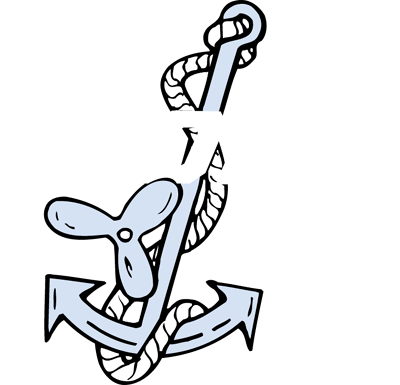Reefer Madness: Scandal-Triggering Pot Case Finally Snuffed
CHRISTOPHER DRESSER v. USCG, JOSEPH N. INGOLIA,
MEBA MEDICAL BENEFITS, et. al.
Fifth Circuit, No. 10-30301 (December 22, 2010).
Speaking of CALJ Joseph Ingolia, the Fifth Circuit handed down a decision in December affirming the district court’s dismissal, for lack of subject matter jurisdiction, of this case that has been up and down thefederal appellate staircase a number of times since its 2007 inception triggered the ALJ scandal referred to in the previous comments. (For prior 5th Circuit decision, see, 307 Fed. Appx. 834, 2009 WL 139662 (5th Cir.2009)(not selected for publication in federal reporter).
The case began when Dresser, a licensed marine engineer, tested positive for marijuana, following which ALJ Archie Boggs revoked his license after an administrative hearing. The Commandant affirmed the dismissal but the NTSB remanded for “appearances of impropriety” on the part of ALJ Boggs. The case was then re-assigned to ALJ Brudzinski, whose discussions with defendants Kenneth Wilson and Alyssa Paladino formed part of the broad spectrum of allegations of ex parte misconduct leveled against the Coast Guard ALJ system by now retired ALJ Jeffie J. Massey. ALJ Brudzinski, of course, followed the script and revoked the license as well. Dresser then simultaneously appealed the second decision to the Commandant and brought a suit in district court, claiming due process violations. A number of both procedural and substantive issues were raised and disposed of in the several prior district and appeals court decisions, and they are not of concern to us here; the one issue that remained to be resolved here is however one of significance to MOPS attorneys: Where must an appeal of a Commandant Appeal Decision be brought?
Previously, there was a division of the circuits on the issue, with at least one 5th circuit (unpublished) decision holding that the regulatory language authorizing an appeal to the NTSB was permissive not mandatory. (That decision is Dominic McDonald V. U.S. Coast Guard, S.D. Tex., Memorandum Opinion dated June 30, 2005, Johnson, M.J. - a case which was briefed and successfully argued by MOPS network attorney Keith Letourneau of Houston.) For contrary opinions, stating that Commandant Appeal Decisions must be appealed first to the NTSB, and then into the appeals court, see, e.g., Kinneary v. City of New York, 358 F. Supp. 356, 360-1 (SDNY 2005); Bruch v. USCG, 736 F. Supp. 634-7 (ED Pa. 1990), Blackwell v. United States, 586 F. Supp. 947-9 (SD Fla. 1984), and most recently, Hocking v. USCG, (D. Mass. April 1, 2011) (Casper J.)
The 5th circuit found that there was no subject matter jurisdiction to hear either Dresser’s APA appeal of the adverse ALJ decision, or his Bivens (constitutional) claims. In reviewing favorably the various decisions from courts in other circuits, the 5th circuit panel affirmed the decision of the district court below by concluding, in company with the other courts noted above, that the exclusive avenue for review of an adverse ALJ decision for a mariner will be to go, first to the Commandant, then to the NTSB and finally into the federal court of appeals. Dresser’s appeal from the Commandant’s decision into district court was characterized by the 5th circuit as “an attempt to circumvent the channeled path for review.” (Pun intended?) The 5th circuit also affirmed the district court’s dismissal of Dresser’s Bivens claims as “inescapably intertwined with his APA claims.”
Evaluation
The 5th circuit has now joined district courts in the 1st, 2nd, and 3rd circuits, among others, in mandating that an appeal of a Commandant Appeal Decision must pass first through the NTSB, and then into the federal court of appeals, rather than a district court. And, as the only appeals court we are aware of that has spoken on the subject, this 5th circuit decision speaks with significant authority and has put any lingering debate on the issue soundly to rest.
What does this mean for mariners and MOPS attorneys? Here are some thoughts on the possible consequences of this required procedure:
- In the end, it will not result in a great deal of lost time in the appellate process. NTSB decisions are relatively quick. A recent survey we conducted in August 2010 showed that NTSB decisions over the past 3 years are typically handed down within about 6 months;
- Going into the Court of Appeals will most certainly mean that mariners and their attorneys will be less likely to be able to open the record for further evidence as they could do, at least in theory, when proceeding before a district court. This may mean taking extra precautions to ensure that all possible evidence about all possible claims is entered upon the record of the ALJ proceeding. And if evidence is objected to, ensure that a thorough offer of proof is entered upon the record;
- Finally, mariners and attorneys should note that the time to file an appeal to the NTSB is short – only 10 days after service of the Commandant’s decision, as opposed to the more leisurely 30 days we are used to for both ALJ and federal court appeals. See, 49 CFR sec. 825.5(a); and
The good news, if there is any at all, may be that in our experience, we have found the NTSB more independent and therefore more ready to uphold the rights of mariners and to bring a generally more balanced and less entrenched view of the whole administrative process than one tends to get from the Commandant, whose interest in sustaining his or her I.O. prosecutors somehow so frequently seems to be riding just beneath the surface. (Pun intended.)
